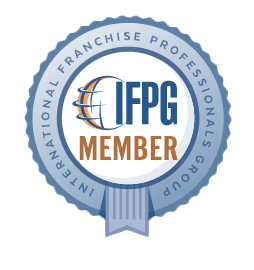How to Know if Your Business is in the Right Century?

The 21st century has brought rapid changes to how businesses operate, and your customers expect you to keep pace. But are your business operations meeting those expectations, or are you still operating with yesterday’s tools? Let’s explore your front and back offices to find out if you’re soaring with the times or lagging. Front of House: Where Your Customers Meet the Future Left Right Cash register Point-of-sale iPad In-store only Online orders Printed receipt Email receipt Print Labels Electronic Shelf Labels Are your employees tapping away on a sleek iPad, or is there a clunky cash register lurking behind the counter? This impacts the customer experience. If you rely solely on foot traffic, you could overlook a vast online marketplace. The internet isn’t going anywhere. Are you handing out tiny scrolls of paper that will probably end up as car floor decor, or are you collecting emails like a savvy marketer? If your pricing is still handwritten, it’s time to update to a digital system that streamlines inventory management. Back of House: The Backbone of Modern Operations Left Right Checks Auto deposit Mail-out invoices Digital invoices Collect payment at the time of service Invoice your customer Abacus or Bank Connect Cloud-based accounting Are your employees still cashing paper checks, or are you simplifying payroll with auto-deposit? Do you prefer a trip to the post office or the immediacy of digital invoicing? Are you collecting payment immediately as services are rendered, or do you enjoy the convenience of sending invoices that provide a clear record and flexible payment options? Still, using an abacus for your accounting? Discover cloud-based solutions that offer far more functionality and efficiency. Trust us, it offers a lot more than just counting beads. Team Communication: Are You Still Waiting on Carrier Pigeons? Left Right Sneaker Express Gmail Green screen 3 monitors Are you still sending your team on foot to deliver messages, or have you embraced the world of instant email communication? If your office tech looks like it belongs in a 90s hacker movie, it might be time to upgrade to a sleek, multi-monitor setup that boosts productivity and keeps pace with current technology. The Bottom Line If you’re nodding along with most items on the left, it might be time for a business makeover. Congratulations! If 5 to 6 of your answers are on the right side, your business is firmly planted in the 21st century. If not, don’t worry—there’s still time to upgrade. Trust us and your customers; your bottom line will thank you. At xendoo, we don’t just handle your accounting; we help you modernize your entire operation. From the right integrations to the most optimal apps, we’re here to streamline your experience so you can focus on what you do best—growing your business.
Lifestyle vs. Growth Business: What Sets Them Apart?

As a business owner, one of the most crucial decisions you’ll make is choosing the type of business model that aligns with your personal and professional goals. Should you focus on creating a lifestyle business that offers a balanced work-life dynamic, or is your ambition geared towards a growth business that seeks rapid expansion and market dominance? Understanding the key differences between these two approaches can help you make an informed decision that suits your priorities and lifestyle. 1. Time Investment Lifestyle Business: If you prefer a more balanced approach to work and life, a lifestyle business might be the right fit. This model typically requires less time commitment, allowing you to work part-time and have more flexibility to enjoy personal activities and family time. Growth Business: On the other hand, a growth-focused business demands a significant time investment. Owners often work long hours to drive expansion and achieve their ambitious financial targets. This intense focus on scaling can result in a considerable reduction in personal time and leisure. 2. Revenue Goals Lifestyle Business: A lifestyle business aims for a steady, reliable income to support a comfortable lifestyle. Revenue goals are usually modest, focused on covering personal expenses and maintaining a balanced life without the pressure of high financial targets. Growth Business: Growth businesses, however, set ambitious revenue goals and focus on scaling operations. The aim is often to achieve high financial returns and reinvest profits to fuel further expansion and capture a larger market share. 3. Work-Life Balance Lifestyle Business: Work-life balance is a top priority for lifestyle business owners. The business is designed to fit around personal life and family commitments, allowing for more leisure time and flexibility. Growth Business: In contrast, growth businesses often sacrifice work-life balance for the sake of expansion. The intense focus on scaling and competitive positioning can lead to long hours and reduced time for personal and family life. 4. Business Objectives Lifestyle Business: The objectives of a lifestyle business revolve around personal satisfaction, steady income, and enjoying work. The business is often built around the owner’s interests and lifestyle preferences, with less emphasis on aggressive growth. Growth Business: Growth businesses focus on market dominance, rapid expansion, and significant financial returns. Aggressive strategies are employed to achieve high growth and establish a strong competitive position. 5. Investment in Resources Lifestyle Business: In a lifestyle business, investment in resources is typically limited. Budgeting focuses on maintaining current operations rather than investing in new technologies or scaling efforts. Growth Business: Growth businesses require high investment in resources such as technology, talent, and marketing. Significant funds are allocated to scaling operations and capturing market share, often involving substantial financial outlays. 6. Risk Tolerance Lifestyle Business: Owners of lifestyle businesses usually have a low risk tolerance. They prefer stability and are cautious about taking on significant financial or operational risks. Growth Business: In contrast, growth businesses often embrace a higher risk tolerance. Owners are willing to take calculated risks to achieve rapid growth, which can involve financial uncertainty and operational challenges. 7. Customer Base Lifestyle Business: A lifestyle business typically serves a niche market or a loyal customer base. The focus is on maintaining personal relationships and providing customized service. Growth Business: Growth businesses aim to build a large and diverse customer base. Strategies include scaling operations and reaching new markets to increase customer acquisition and drive significant revenue growth. Conclusion Choosing between a lifestyle business and a growth business involves considering your personal goals, time commitment, and vision for the future. While a lifestyle business offers flexibility and a balanced approach to work and life, a growth business demands significant time and investment for rapid expansion and high financial returns. Reflect on your priorities and make the choice that best aligns with your aspirations and lifestyle. No matter which path you choose, having reliable financial management is crucial. That’s where xendoo comes in. Whether you’re focused on maintaining a balanced lifestyle or scaling your business for rapid growth, xendoo’s comprehensive bookkeeping and accounting services can support your needs. Our catch-up bookkeeping services ensure your financial records are accurate and up-to-date, giving you more time to focus on what matters most – running a successful business.
Gain Profitability & Boost Productivity: Professional Services

In the world of professional services, time is money. Whether you’re a consultant, lawyer, accountant, marketer, or other service provider, your business revolves around selling your time and expertise. So, how can you increase profitability without simply raising your rates? The answer lies in optimizing how you use your time, enhancing productivity, and ensuring your pricing model aligns with your business goals and market standards. Here’s how you can gain time back and boost profitability in your professional services business: 1. Boost Productivity: Get More Out of Every Minute The key to increasing profitability in a time-based business is to maximize the value of every minute. Here’s how to do it: Tool-Specific Training: Invest in tool-specific training sessions where your team can learn the ins and outs of the software and technology you use daily. For example: Project Management Software (e.g., Asana, Trello): Conduct a workshop where you show your team how to organize tasks, set deadlines, and collaborate on projects within the platform. Demonstrate how to create templates for recurring tasks to save time. This not only helps in task management but also ensures that everyone is on the same page. Time-Tracking Tools (e.g., Toggl, Harvest): Train your team on how to accurately track their time using time-tracking software. Provide examples of how detailed time entries can help in identifying inefficiencies and areas where time can be saved. Encourage your team to regularly review their tracked time to find patterns and optimize their work routines. Communication Platforms (e.g., Slack, Microsoft Teams): Show your team how to use communication tools effectively. For instance, teach them how to use channels to organize conversations by project or department, how to set notifications to avoid distractions, and how to use integrations (like file sharing or task assignments) to streamline communication. Leverage Technology: Three Monitors Setup: If your team isn’t using a multi-monitor setup yet, it’s time to make the switch. Having three monitors can significantly increase productivity by reducing the time spent switching between windows, allowing for more seamless multitasking. This simple upgrade can help your team handle tasks more efficiently, ultimately increasing billable hours without extending work hours. The Right Tech Stack: Investing in the right technology can streamline operations, automate routine tasks, and reduce manual errors. For example, project management software like Asana or Trello can help keep tasks organized, while communication tools like Slack can improve team collaboration. Time-tracking apps can also help ensure that billable hours are accurately recorded, ensuring you get paid for every minute of work. 2. Re-evaluate Your Pricing Model Your pricing model can significantly impact your profitability. It’s crucial to ensure that your rates are aligned with the value you provide and are competitive in your region and industry. Are You Priced Correctly? Take a close look at your current pricing structure. Are you charging enough for your services? Are your rates in line with industry standards in your region? Underpricing can lead to burnout as you work more hours for less pay, while overpricing can drive clients away. Finding the right balance is key to maximizing profitability without overextending yourself or your team. Regularly Review and Adjust Pricing: The market, your business, and client expectations are always evolving, and so should your pricing. Regularly reviewing and adjusting your rates ensures that you remain competitive and profitable. Market Analysis: Conduct a market analysis at least once a year to understand how your pricing compares to competitors. If you’re undercharging, it may be time to increase rates to match the market. If you’re overcharging, consider adding more value to justify the higher price point or adjusting your rates accordingly. Cost Analysis: Analyze your operating costs and ensure that your pricing covers these costs while providing a healthy profit margin. Rising costs, such as salaries, software subscriptions, and other overheads, may necessitate a pricing adjustment. Client Feedback: Seek feedback from your clients to understand their perception of the value they receive for the price they pay. Use this feedback to fine-tune your pricing strategy and ensure it aligns with client expectations. 3. Reclaim Your Time as a Business Owner As a business owner, your time is your most valuable asset. Here’s how you can gain some of it back: Delegate and Automate: Don’t get bogged down in tasks that can be delegated or automated. Use accounting software to automate invoicing, payroll, and expense tracking. Delegate administrative tasks to a virtual assistant or office manager. By freeing yourself from these routine tasks, you can focus on strategic growth and client relationships, which are more valuable uses of your time. Implement Efficient Processes: Streamline your business processes to save time. For example, standardize your client onboarding process, create templates for common tasks, and set up automated workflows where possible. Efficient processes reduce the time spent on repetitive tasks and help ensure your business runs smoothly even when you’re not directly involved. Conclusion In professional services, increasing profitability doesn’t always mean working more hours. You can enhance your profitability while maintaining a balanced, sustainable lifestyle by boosting productivity, ensuring your pricing is right, and reclaiming your time as a business owner. With the right strategies and tools, such as those offered by xendoo, you can make every minute count. xendoo’s expert bookkeeping and financial services ensure that your financials are always up-to-date and accurate, giving you the peace of mind and freedom to focus on what matters most—growing a thriving, profitable business. Let xendoo handle the numbers so you can focus on scaling your success.
7 Tax-Saving Hacks Every Business Owner Needs

Maximizing tax savings is essential for any business aiming to optimize its financial health. By strategically leveraging tax-saving opportunities, you can reduce your taxable income, improve your cash flow, and allow you to reinvest in your business. Here are seven effective ways to enhance your tax savings: 1. Change Your Business Structure Changing your business to an S Corporation (S Corp) can significantly maximize your tax savings by offering a more efficient tax structure. Different from a C Corporation, where profits are taxed at both the corporate level and again as dividends to shareholders, an S Corp allows income and losses to pass through directly to shareholders’ personal tax returns. This structure avoids the double taxation issue and can lower your overall tax burden. Additionally, S Corp shareholders can receive a portion of their income as distributions, which are not subject to self-employment taxes, potentially reducing Social Security and Medicare tax liabilities. By leveraging deductions for business expenses and retirement plan contributions, along with strategically distributing income, an S Corp can provide considerable tax benefits and financial flexibility. 2. Invest in Your Business Using Section 179 Section 179 offers a great way to boost your business’s tax savings by letting you deduct the full cost of qualifying equipment and software in the year you buy or lease it. Instead of spreading the deduction over several years, you can take the entire amount off your taxable income right away. For example, if you purchase $50,000 worth of new machinery or software, you can deduct the full $50,000 this year, rather than over a longer period. Additionally, if you lease equipment, the lease payments can also be deducted under Section 179, making it easier to manage cash flow while still reaping the tax benefits. This approach not only reduces your taxable income but also frees up cash for other investments or business needs. 3. Prepay Now Your Expenses Now, Save Later By prepaying certain expenses before the end of the year, you can deduct these costs in the current tax year, which reduces your taxable income for that year. For instance, if you prepay your rent for January and February before the year ends, you can claim those rent payments as deductions for the current year, lowering your tax liability. Similarly, Prepaying for services like advertising or insurance can also help you save on taxes. By paying for these expenses before the end of the year, you can claim them as deductions right away. This means you can reduce your taxable income for the current year, which lowers your tax bill. It also helps improve your cash flow and makes it easier to plan your finances. This simple strategy not only cuts your current tax expenses but also gives you better control over your financial planning. 4. Write Off Bad Inventory According to IRS guidelines, businesses can deduct the cost of inventory that is obsolete, damaged, or otherwise unsellable. For example, if you run a print manufacturing company and have old paper and supplies that are no longer useful, you can write off these items as a loss. If you donate them to a local school or nonprofit, you can often claim a charitable contribution deduction as well, potentially increasing your tax savings. Similarly, if you sell sneakers and have old models that aren’t selling, you can write off the cost of these unsold items and donate them. By writing off bad inventory, you reduce your taxable income, which lowers your overall tax liability, and also provide valuable contributions to your community. Just ensure that all inventory write-offs and donations are properly documented and comply with IRS regulations. 5. Rent Your Home to Your Business for Meetings Renting your house for company meetings can be a smart way to maximize your business’s tax savings. According to IRS guidelines, you can rent your home to your business for up to 14 days a year without having to report the rental income, as long as the rental arrangement is at fair market value and used for business purposes. This rental income remains tax-free, and your business can deduct the rental expense as a business cost. For instance, if you charge your business a fair market rate for using your home for meetings or events, your business can deduct this cost, reducing your overall taxable income. This approach not only provides a way to earn additional income without paying taxes on it but also helps cut down your business’s tax liability. Just make sure the rental arrangement is at fair market value and properly documented to stay compliant with IRS regulations. 6. Fund a Retirement Plan Funding a retirement plan is a great way to save on taxes for your business. Contributions to retirement plans, like a simple / solo 401(k) or SEP IRA, are tax-deductible, which means they reduce your taxable income for the year. For example, if your business puts $20,000 into a SEP IRA, that amount is deducted from your taxable income, lowering your tax bill. This not only cuts your current taxes but also helps you save for the future. Additionally, having a retirement plan can improve employee satisfaction and attract talented workers. Overall, funding a retirement plan offers immediate tax benefits and supports long-term financial security for both you and your employees. 7. Hire a Tax Advisor Bringing a tax advisor on board can significantly enhance your business’s ability to maximize tax savings. Tax advisors are experts in navigating complex tax laws and can identify opportunities to reduce your tax liability that you might overlook. They can help with strategic planning, ensure compliance with current regulations, and provide advice on deductions, credits, and other tax-saving strategies tailored to your business. With their guidance, you can optimize your tax position and avoid costly mistakes. At xendoo, our team of expert tax advisors is here to help you maximize your tax savings. Plus, our comprehensive accounting and bookkeeping services ensure your financial records are meticulously managed, giving you the clarity and
5 Bookkeeping Tips for Small Businesses

Financial forecasting is a vital aspect of running a successful small business. It involves predicting future financial performance based on historical data, current trends, and strategic plans. Effective forecasting relies on accurate bookkeeping and thoughtful analysis. Implementing these top five bookkeeping tips will help you enhance your financial forecasting, make informed decisions, and drive your business forward. 1. Maintain Accurate Financial Records Why It Matters: Accurate financial records are the bedrock of reliable forecasting. If your records are complete and correct, your forecasts will be correct, eliminating the potential of misguided strategies and missed opportunities. Tip: Invest in advanced bookkeeping software to keep your financial records precise and current. Tools like QuickBooks, Xero, and FreshBooks offer features that automate data entry, track expenses and income, and generate real-time financial reports. Regularly reconcile your bank statements with your records to ensure consistency and accuracy. This practice helps you avoid discrepancies and provides a solid foundation for forecasting. 2. Develop a Detailed Budget Why It Matters: A well-constructed budget acts as a financial blueprint for your business. It helps you set realistic revenue targets, allocate resources effectively, and anticipate future expenses, all of which are crucial for accurate forecasting. Tip: Start by outlining your fixed costs (such as rent, salaries, and insurance) and variable costs (such as utilities, marketing, and materials). Use historical data to project future revenue and account for seasonal variations and market trends. Incorporate a buffer for unexpected expenses. Regularly review and adjust your budget to reflect changes in your business operations, economic conditions, and industry trends. 3. Implement Cash Flow Projections Why It Matters: Cash flow projections are essential for ensuring your business has sufficient liquidity to cover its operational needs. Without accurate projections, you might face cash shortfalls, impacting your ability to pay bills, invest in growth, or respond to unforeseen challenges. Tip: Create detailed cash flow forecasts by analyzing past cash flows and considering future income and expenditures—factor in upcoming expenses, expected revenue, and any planned capital investments. Use forecasting tools and software to automate this process and generate periodic reports. Regularly update your projections based on actual performance and changes in your business environment. This proactive approach helps you manage cash flow effectively and avoid liquidity issues. 4. Analyze Financial Statements Regularly Why It Matters: Financial statements, including income statements, balance sheets, and cash flow statements, provide critical insights into your business’s financial health. Regularly analyzing these documents helps you identify trends, spot potential issues, and make data-driven decisions. Tip: Schedule monthly or quarterly reviews of your financial statements to stay informed about your business’s performance. Focus on key financial metrics such as profit margins, operating expenses, and revenue growth. Use this information to adjust your financial forecasts and strategies. Consider working with a financial advisor or accountant to help interpret your statements and provide expert guidance on strategic decisions. 5. Leverage Historical Data for Forecasting Why It Matters: Historical financial data is a valuable reference point for forecasting. Analyzing past performance helps you understand trends, set realistic goals, and predict future financial outcomes more accurately. Tip: Gather and analyze historical data on sales, expenses, cash flow, and other financial metrics. Identify patterns and correlations that can inform your forecasting assumptions. For example, if you observe seasonal sales spikes, incorporate these patterns into your future projections. Additionally, use industry benchmarks and market research to enhance the accuracy of your forecasts and align them with broader market trends. Effective financial forecasting is a key component of successful business management. By maintaining accurate records, developing a detailed budget, implementing cash flow projections, analyzing financial statements, and leveraging historical data, you can create reliable forecasts that support strategic decision-making and drive your business’s success. At xendoo, we are committed to helping small businesses master their financial management and forecasting. Our expert bookkeeping services and personalized support are designed to provide you with the insights and tools you need to thrive. Contact us today to discover how we can assist you in optimizing your financial practices and achieving your business goals. For more expert tips to avoid costly catch-up bookkeeping mistakes click here!
5 Reasons Catch-Up Bookkeeping Can Propel Your Start-up or Small Business

Managing finances can make a big difference in the success of start-ups and small businesses. Maintaining updated and accurate financial records is crucial for many financial management functions. Catch-up bookkeeping is a method for bringing your financial records up to date when they have become outdated. This catch-up bookkeeping is crucial for small business owners, especially those in the early stages, as it helps them achieve financial clarity, maximize tax deductions, and enhance financial management. This is where xendoo.com is helpful, as it provides a wide range of services curated according to the needs of small- to medium-sized enterprises. This article will highlight the five essential reasons why catch-up bookkeeping can drive a start-up or small business forward, allowing the owners to make informed decisions for long-term success. 1. Gain Financial Clarity Importance of Clear Financial Records Clear financial records form the foundation of effective management, especially for start-ups and small businesses. By bringing your books up to date, you gain a clear picture of your business’s financial health, allowing you to make informed decisions about the future. Learn more about financial statements from Investopedia and how to understand them better. Visibility into Income, Expenses, and Cash Flow Catch-up bookkeeping provides comprehensive visibility into your financial situation, including revenue sources, operational costs, and cash flow. This helps you maintain sufficient working capital and plan for future expenses. For tips on managing business cash flow, check out the SBA’s guide to cash flow management. Benefits of Informed Decision-Making Accurate financial records are critical for making strategic decisions. With detailed insights into your income, expenses, and cash flow, you can identify areas to reduce costs, allocate resources more efficiently, and spot new opportunities. xendoo.com supports you by ensuring your finances are current and organized. Maximize Tax Deductions Challenges of Tax Season for Entrepreneurs Tax season is often a stressful time for business owners. Small businesses, especially those without a dedicated accounting team, struggle to track eligible deductions and rapid changes in tax laws add another layer of complexity. How Catch-Up Bookkeeping Helps Capture All Eligible Expenses and Deductions Catch-up bookkeeping meticulously tracks eligible expenses, maximizing deductions and reducing tax liabilities. xendoo.com’s expert accountants ensure your records are accurate, compliant, and up-to-date, helping you capture all potential deductions. Potential Cost Savings and Advantages of Organized Records During Tax Preparation The tax benefits of using catch-up bookkeeping are an important factor to help save money when preparing returns. Simultaneously, by maintaining an orderly record of all the financial activity the business is involved in, business owners will benefit financially by saving time and money when submitting their annual taxes. These can enable them to provide accurate and detailed records to their tax preparer that can prevent errors if they are not claiming deserving deductions and credits. Accurate and organized record-keeping allows tax preparers to spot tax-saving opportunities, deferring some income and accelerating spending, potentially leading to great tax savings. Spot Financial Trends Value of Analyzing Historical Financial Data Analyzing historical data reveals valuable trends that can guide your business decisions. Reviewing revenue, costs, and net profit patterns over time can uncover strengths, weaknesses, and growth opportunities, helping refine your business strategy. How Catch-Up Bookkeeping Enables Businesses to Identify Trends and Patterns Catch-up bookkeeping is the basis for examining the data to determine current and future trends and patterns. This can be done by upgrading financial documents, spotting the development of the business’s financial performance, and detecting periodic patterns and trends. For example, a drop in sales during winter or marketing activities triggers an increase in sales. This level of data allows organizations much-needed insight into making strategic decisions, such as targeting marketing or tapping into a new market to ride on trends and boost revenue. Examples of Strategic Decision-Making Based on Financial Insights Another way that financial intelligence impacts these tactical decisions is by tailoring price strategies according to consumer buying behaviors. Collecting past sales data can help one learn that some products are often consumed more at a particular time of the year or that customers are ready to pay a higher price only for a specific selection. Using the information obtained, small business owners will be able to invent a pricing strategy, which will allow them to increase their earnings. Another example is identifying cost-saving opportunities based on the data collected from historical expenses. By analyzing past expenses, a business can locate where cost reductions are possible, such as canceling some contracts with suppliers or simplifying internal processes. These instances illustrate that analyzing historical financial data helps businesses make well-informed strategic decisions, boosting their efficiency and growth. Enhance Investor Confidence Importance of Transparent Financial Records for Attracting Investors Transparency accounting is very important in attracting investors as it gives a clear picture of the business’s financial health and performance, which comes in handy in informing decisions about injections. The investors use financial reports to consult about the possibility of investing in the business. Also, these reports serve as a means of assessing the risks and return on investment that would come their way. The accounting records convince investors that the business is good in finance, stable, and sustainable enough to make a profit for them, which is good evidence of effective management. How Catch-Up Bookkeeping Demonstrates Commitment to Financial Integrity Catch-up bookkeeping is proof of financial integrity because it ends the gaps between the books, provides the most accurate and up-to-date records, and complies with accounting standards and regulations. As a result, it indicates that you perform these duties responsibly and strive to provide them with faultless and notable financial information. This attitude of having confidence in your financial values will build trust among investors, and they will be certain that you meet their investment goals. Benefits of Organized Financial Statements in Investor Relations Properly prepared financial statements are a major stakeholder relationship enhancer, showing investors the cleaned and arranged version of your company’s financial performance. Structured financial statements make understanding your business’s investment prospects fairly simple. Investors can easily find
Mastering the Process of Finding the Right Bookkeeping and Accounting Support

Accurate bookkeeping and accounting are essential for small and medium-scale businesses in today’s fast-moving business world. Simple tasks such as tracking expenses and controlling compliance with tax regulations can quickly become intimidating for small and medium-scale business owners. This, compounded with the fact that finding the ideal bookkeeping and accounting assistance can be hard, makes seeking the proper financial guidance essential. This article discusses the elements, the steps, the tips, and what to consider when identifying and hiring an accountant or bookkeeper for your business. Step-by-Step Guide to Finding a Trustworthy Accounting or Bookkeeping Service Every business is different and unique in its requirements to operate smoothly and profitably. Recognizing a business’s needs is the first step to selecting the proper accounting and bookkeeping service. We must evaluate the depth of financial management tasks, the number of transactions, and the industry to determine if any niche is involved. Equipped with an explicit comprehension of the business’s needs, the business owner can identify a suitable accounting and bookkeeping service provider to meet the business’s requirements. The subsequent move should encompass the preparation of a checklist, which should be used to screen prospective advisors to confirm their expertise, qualifications, and reputation. Remember to check if they have the necessary credentials, valid qualifications, certifications, and specialized knowledge. Indiscriminate personal information leakage can negatively affect one’s career, social, and work circles. At the same time, proper security and privacy measures should be prioritized. Expert Tips for Finding the Best CPA Tax Accountant Tailored to Business Needs The CPA is irreplaceable in handling tax record-keeping, which requires their knowledge and experience, placing you in the best position possible. CPAs know tax laws and regulations, which help them deal with the complex flow of tax submission procedures and reduce liability costs. Selecting a CPA with enough competence to handle your business is crucial. Since it would be helpful to start with CPA professionals with corresponding specialized skills to either the business industry or the industry the capstone project is about, it is advisable to identify those CPA professionals first. Small business owners should also consider the skillset closely related to efficient bookkeeping and accounting. Other factors like approach to conversation, directions, and time come into account and are of primary importance. Your CPA should be able to answer questions you raise quickly, understand your conditions, and explain the details of complicated tax problems in a way that you can understand and comply with quickly. Exploring the Alternatives to Non-CPA Bookkeepers While Certified Public Accountants (CPAs) are renowned for their expertise in tax services, it’s crucial to recognize the valuable contributions of non-CPA specialists to bookkeeping. These dedicated accounting clerks and bookkeepers play a vital role in day-to-day financial management by organizing paperwork, preparing essential financial statements, and overseeing daily transactions. While CPAs typically excel in complex financial tasks due to their advanced knowledge and certification, non-CPA experts often possess comparable expertise for many tasks. Their involvement complements CPA services rather than competing with them, especially in areas like taxpayer representation or specialized tax planning advice, where specific CPA knowledge may not be necessary. The choice of which financial management services best suit their demands is a crucial one for business owners. A balanced approach is ensured by balancing the advantages of professional CPA services against the equally relevant day-to-day financial management skills offered by non-CPA bookkeepers. Uncovering the Essential Accounting Services That Empower Small Businesses Managing your business finances smoothly is the real key to the success of any small business. Accounting is responsible for recording, summarizing, and reporting financial transactions involving bookkeeping and payroll processing, cash flow management, and financial reporting. That is why choosing a reputable accounting firm can be very beneficial, even eliminating the burden of monotonous tasks in routine business operations and permitting the use of resources and time for decision-making and policy-making. The range of accounting services goes far beyond the accounting core. The advisory services are specifically geared to the exact needs of small businesses. This is where some suggest ideas on tax planning, financial forecasting, budgeting, and risk mitigation. With the help of seasoned professionals, companies can make the right decisions, they can identify the risks, and they will be able to mark out the right path through the unpredictable marketplace. When Outsourcing Bookkeeping Makes Sense As a small business entrepreneur, frequently wearing many hats is common. However, carrying out such delicate jobs as bookkeeping and accounting consumes a lot of time and resources when performed by oneself. Delegating these functions allows businesses to enjoy the advantages of cost-effectiveness, productivity increase, and skill-specialized services. Outsourcing accounting will enable companies to free up their time and efforts to fulfill their primary functions and goals. Outsourcing also scales a business by customizing the support level associated with the growth or fluctuation of business during specific seasons. At xendoo.com, you can rely on our competent team to handle your firm’s accounting needs. Rest assured, your accounting and bookkeeping are in the hands of our expert team. How to Find and Choose an Outstanding Outsourced Accounting Service Provider Outsourcing accounting tasks presents an opportunity for small and medium-sized businesses to enhance efficiency and lower expenses. Yet, the key lies in selecting the appropriate outsourced accounting provider. By adhering to this guide, you can pinpoint a provider that aligns with your accounting requirements, boasts relevant experience and proficiency, holds accreditation and certification, utilizes modern technology, prioritizes effective communication and customer service, and maintains transparent pricing. With a suitable outsourced accounting partner, you can concentrate on business expansion while entrusting accounting responsibilities to seasoned professionals. Conclusion We at xendoo.com share your passion, your dedication to making your dreams a reality inspires us. That’s why we’re committed to providing you with the financial visibility and support you need to thrive. We are a one-stop shop that offers a full range of services, such as effortless tax prep and filing, a full-service bookkeeping and accounting team to free up your time and resources; and fractional CFO
8 Tips To Unlocking Small Business Success

Running a small business requires dedication, smart decision-making, and effective financial management. One of the cornerstones of financial health and growth for any business is effective bookkeeping. Here’s a detailed guide to help small business owners unlock success through meticulous bookkeeping practices. Understanding Bookkeeping Bookkeeping is the systematic documentation of all financial transactions within an organization. It involves recording, storing, and retrieving financial data, clearly showing a company’s financial health. Proper bookkeeping is critical for making informed business decisions, ensuring tax compliance, and fostering business growth. Key Terminology Familiarizing yourself with basic bookkeeping terminology is the first step: Assets: Resources owned by the business. Liabilities: Obligations owed by the business. Equity: The owner’s interest in the business. Revenue: Income generated from business operations. Expenses: Costs incurred to generate revenue. Setting Up Your Bookkeeping System Choosing the Right Method There are two primary methods of bookkeeping: Cash-Basis: Records transactions when cash is exchanged. It’s simpler but may not provide a complete financial picture. Accrual-Basis: This method records transactions when they are earned or incurred, giving a more realistic view of your company’s financial health. Understanding the differences between these methods is crucial for choosing the right approach for your business. Selecting Bookkeeping Software Choose software that matches your company’s size, industry, and specific needs. Accounting software can save time, enhance accuracy, and streamline business processes. Tools like the Profit Margin Calculator and the Free Burn Rate Calculator help you manage your finances effectively. Creating a Chart of Accounts This step involves listing all the accounts used in your accounting system. Accounts are grouped into assets, liabilities, equity, income, and expenses, tailored to your company’s needs. Recording Financial Transactions Importance of Timely and Accurate Recording To maintain the integrity of your financial data, ensure all transactions—sales, purchases, payments, and receipts—are recorded promptly and accurately. Digital accounting systems can automate processes, improve accuracy, and simplify information access. Managing Accounts Receivable and Payable Monitoring Payments and Invoices Keep track of customer invoices and payments to ensure timely collections and maintain healthy cash flow. Effective management of accounts receivable is key to maintaining a positive cash flow. Managing Vendor Bills and Payments Monitor vendor bills, ensure timely payments, and maintain positive supplier relationships to avoid late penalties. Maintaining Healthy Cash Flow Use strategies like controlling costs, following up on overdue payments, and timely invoicing to keep your cash flow positive. Learning how to maintain a healthy cash flow is essential for sustaining your business operations. Reconciling Accounts Bank Reconciliation Process Bank reconciliation involves comparing your accounting records with your bank statements to ensure accuracy. This process helps identify and correct discrepancies, enhancing financial management and decision-making. Generating Financial Reports Regular preparation of key financial reports is crucial for small business owners: Balance Sheet: Provides a snapshot of your company’s financial condition. Income Statement: Shows revenue and expenses over a period. Cash Flow Statement: Tracks cash movements in and out of the business. These essential financial reports provide insights into your company’s financial health, helping you recognize trends and make informed strategic decisions. Regular review, preferably monthly or quarterly, is recommended. Staying Compliant with Tax Obligations Understanding Tax Obligations Familiarize yourself with relevant tax regulations, including income tax, sales tax, and payroll tax. Keep accurate records and stay updated on tax laws to ensure compliance and avoid fines. Consulting a tax professional can provide valuable guidance and small business tax compliance tips. For additional support, consider resources from organizations like the Small Business Association. Seeking Professional Help Hiring an Accountant or Bookkeeper As your business grows, consider hiring a professional bookkeeper or accountant. They bring expertise, accuracy, and efficiency, allowing you to focus on core business activities. Choosing the Right Professional Evaluate potential bookkeepers or accountants based on their credentials, experience, and industry knowledge to ensure they meet your company’s needs. Conclusion Accurate bookkeeping is essential for the success and growth of any small business. By maintaining precise financial records, you gain valuable insights, make informed decisions, and ensure tax compliance. At xendoo, we understand the challenges small business owners face in managing their finances. Our comprehensive bookkeeping, catch-up, tax, and CFO services are designed to help you stay on top of your financial records and focus on what you do best—running your business. Contact us today to learn how we can support your company’s financial success. Key Takeaways: Best bookkeeping practices for small businesses include timely and accurate transaction recording. Understanding accrual vs cash basis accounting for small businesses helps choose the right method. Managing small business finances effectively involves using the right software and maintaining a healthy cash flow. Generating essential financial reports for small business owners is crucial for informed decision-making. Follow small business tax compliance tips to stay compliant with tax obligations.
Balancing Act: The Role of Bookkeeping in Scaling Your Business to New Heights

As small and medium-sized businesses (SMBs) strive to grow and expand, precise financial management becomes increasingly critical. Among the myriad of tasks business owners juggle daily, bookkeeping stands out as a fundamental component that can significantly impact the company’s ability to scale. When done correctly, bookkeeping not only ensures compliance and financial stability but also provides the strategic insight needed to make informed decisions that propel your business to new heights. In this article, we explore the pivotal role of bookkeeping in business growth and offer practical tips on leveraging it to achieve scalability. The Foundation of Business Growth: Accurate Financial Records At the heart of every successful business lies accurate financial records, which serve as the foundation upon which all strategic decisions are made. Bookkeeping involves systematically recording, organizing, and managing all financial transactions, including sales, purchases, income, and payments. This meticulous process provides a clear picture of your business’s financial health, enabling you to identify trends, manage cash flow, and plan for the future. Why Accurate Bookkeeping Matters Informed Decision-Making: With up-to-date financial records, business owners can make well-informed decisions regarding investments, expansions, and cost-cutting measures. Accurate data allows you to analyze profitability, identify underperforming areas, and allocate resources effectively. Compliance and Tax Preparation: Keeping precise financial records ensures compliance with local regulations and simplifies the tax preparation process. Accurate bookkeeping reduces the risk of errors and penalties, ensuring that your business meets all legal obligations. Financial Transparency: Transparency in financial reporting builds trust with stakeholders, including investors, creditors, and employees. It demonstrates that your business is managed professionally and ethically, which is crucial for securing funding and fostering long-term relationships. Bookkeeping as a Strategic Tool for Scaling Scaling a business involves more than just increasing sales; it requires a strategic approach to managing growth. Effective bookkeeping plays a crucial role in this process by providing the financial insight needed to support strategic planning and execution. Cash Flow Management One of the biggest challenges growing businesses face is managing cash flow. Positive cash flow is essential for sustaining operations and funding expansion. Bookkeeping helps you monitor cash inflows and outflows, ensuring that you have enough liquidity to meet your obligations and invest in growth opportunities. Budgeting and Forecasting Accurate financial records are the backbone of effective budgeting and forecasting. You can create realistic budgets and financial forecasts that guide your business growth by analyzing historical data. This allows you to set achievable targets, allocate resources efficiently, and anticipate potential financial challenges. Cost Control and Profitability Analysis Scaling your business often involves significant investments in new equipment, technology, or personnel. Bookkeeping helps you track these expenses and analyze their impact on profitability. You can implement cost-control measures that enhance profitability and support sustainable growth by identifying cost drivers and monitoring expenses. Implementing Robust Bookkeeping Practices To leverage bookkeeping as a strategic tool for scaling your business, it’s essential to implement robust bookkeeping practices. Here are some practical tips to help you get started: 1. Automate Financial Processes Automation can significantly enhance the accuracy and efficiency of your bookkeeping. Modern accounting software like QuickBooks, Xero, or FreshBooks offers automated transaction recording, invoice generation, and expense tracking features. These tools reduce manual errors, save time, and provide real-time financial data that supports informed decision-making. 2. Establish a Consistent Routine Consistency is key to effective bookkeeping. Establish a routine for recording transactions, reconciling accounts, and generating financial reports. Daily or weekly bookkeeping sessions ensure that your financial records are always up-to-date, making it easier to monitor cash flow and identify issues promptly. 3. Separate Business and Personal Finances Maintaining a clear separation between business and personal finances is crucial for accurate bookkeeping. Use dedicated business bank accounts and credit cards for all business transactions. This practice simplifies record-keeping, ensures compliance, and provides a clear picture of your business’s financial health. 4. Monitor Key Financial Metrics Regularly monitoring key financial metrics helps you stay on top of your business’s financial performance. Focus on gross profit margin, net profit margin, current ratio, and accounts receivable turnover. These indicators provide valuable insights into your business’s profitability, liquidity, and operational efficiency. 5. Conduct Regular Financial Reviews Periodic financial reviews allow you to assess your business’s financial health and make necessary adjustments. Conduct monthly or quarterly reviews of your financial statements, including income statements, balance sheets, and cash flow statements. Use these reviews to identify trends, evaluate performance against budgets, and make data-driven decisions. The Role of Professional Bookkeeping Services As your business grows, the complexity of your financial transactions increases. Outsourcing bookkeeping to professional services like xendoo can provide significant advantages at this stage. Professional bookkeepers offer expertise, accuracy, and efficiency that can enhance your business’s financial management. Benefits of Professional Bookkeeping Services Expertise and Knowledge: Professional bookkeepers possess specialized knowledge and experience in managing financial records for businesses of all sizes. They stay updated on the latest accounting standards and regulations, ensuring compliance and accuracy. Time and Resource Savings: Outsourcing bookkeeping frees up your time and resources, allowing you to focus on core business activities. This increased focus can drive growth and improve operational efficiency. Scalability: Professional bookkeeping services can scale with your business, providing the necessary support as your financial needs evolve. Whether you require basic bookkeeping or full-service CFO support, professional services can adapt to meet your changing requirements. In the journey of scaling your business, bookkeeping is not just a task to be checked off your list; it’s a strategic tool that can drive your business to new heights. By maintaining accurate financial records, managing cash flow, budgeting effectively, and implementing robust bookkeeping practices, you can create a solid foundation for growth. Leveraging professional bookkeeping services further enhances your ability to manage complexity and focus on strategic initiatives. At xendoo, we offer tailored bookkeeping solutions designed to meet the unique needs of SMBs, helping you achieve financial stability and confidently scale your business. Explore our services to discover how we can support your journey to success. Contact our team at xendoo to learn more and take the
Navigating the Essentials of Hiring and Utilizing Bookkeeping Services

Bookkeeping is the cornerstone of a successful firm, ensuring compliance and financial stability crucial for growth. For small to medium-sized businesses (SMBs), maintaining accurate and timely financial records is not only a legal requirement but also a strategic necessity for future planning and informed decision-making. However, the complexity of accounting tasks, from tracking daily transactions to preparing detailed financial statements, can be overwhelming. This article will guide you through selecting a trustworthy bookkeeper and the qualities to look for to ensure they meet your business needs. Understanding Essential Bookkeeping Tasks Overview of Essential Bookkeeping Tasks Bookkeeping involves several critical responsibilities to monitor your company’s finances: Daily Transaction Recording: Every business transaction must be logged and categorized accurately, aiding in cash flow understanding and financial report generation. Financial Statement Preparation: Monthly and yearly financial statements, including cash flow, income, and balance sheets, offer a snapshot of your company’s financial health and are vital for strategic planning. Bank and Credit Card Reconciliation: Ensuring transactions on your bank and credit card statements match your financial records helps detect and correct discrepancies early. Payroll Management: This includes calculating tax withholdings and other deductions, ensuring all employees are paid accurately and on time. These tasks ensure an accurate record of financial activities, facilitating the production of financial statements essential for strategic planning and decision-making. Why These Tasks Are Essential for Businesses Accurate and consistent bookkeeping supports various business management tasks, including: Financial Health Monitoring: Accurate records help business owners monitor financial trends and assess the overall health of their company, aiding in informed decision-making and identifying areas for improvement. Compliance and Audit Preparation: Proper bookkeeping streamlines tax filing and audit preparation, reducing the risk of errors and potential legal issues. Strategic Business Decisions: Financial reports generated from accurate bookkeeping inform forecasting, budgeting, and resource allocation decisions. Fraud Prevention: Regular bank and credit card reconciliation helps detect inconsistencies and prevent fraud. Employee Satisfaction and Compliance: Efficient payroll management ensures timely and accurate wage payments, compliance with labor laws, and employee satisfaction, contributing to a productive work environment and overall corporate performance. Evaluating Bookkeeping Services Criteria for Selecting a Reliable Bookkeeper Consider the following factors when choosing a bookkeeping service: Qualifications and Experience: Look for certifications such as CPA (Certified Public Accountant) or CB (Certified Bookkeeper) and experience in your specific industry. Understanding of Industry-Specific Needs: A bookkeeper familiar with industry norms and challenges can provide tailored services to meet your business’s unique requirements. Technology and Software Proficiency: Ensure the bookkeeper is proficient with modern accounting platforms and applications, capable of providing real-time financial information and streamlining bookkeeping processes. How to Evaluate Bookkeeping Service Quality Assessing a bookkeeping service’s quality involves: Evaluating Timeliness, Accuracy, and Transparency: Reliable bookkeeping services maintain accurate records, deliver timely reports, and are transparent about their fees and processes. Examining Testimonials and Feedback: Client endorsements and reviews offer insights into the service’s dependability and quality. Look for trends in feedback to gauge overall client satisfaction. Testing the Service: Consider starting with a small project or trial period to evaluate the service’s responsiveness and compatibility with your business needs before committing long-term. How to Hire Outsourced Bookkeeping Services Steps to Hiring an Outsourced Bookkeeping Service Hiring an outsourced bookkeeping service involves several steps: Determining the Service Scope and Business Needs: Clearly define what you need from a bookkeeping service, including types of tasks, service levels, and expected outcomes. Looking for and Evaluating Potential Services: Research potential bookkeeping services, considering reputation, service offerings, and pricing. Shortlist those that meet your criteria. Interviewing and Assessing Options: Interview shortlisted services, asking pertinent questions about their experience, methodology, and approach to handling various bookkeeping tasks. Integrating Outsourced Bookkeepers into Your Business Once you select a bookkeeping service, integrate them into your business by: Setting Up Communication and Data Transfer Systems: Share data on secure platforms and establish regular communication schedules to ensure alignment on goals and expectations. Frequent Updates and Meetings: Arrange regular updates and meetings to discuss financial reports, address concerns, and review any changes in business needs. Feedback and Continuous Improvement: Implement systems for providing feedback and improving service delivery over time. Constructive feedback helps enhance service quality and ensures it meets your evolving business requirements. Conclusion Outsourcing your bookkeeping to a professional service like xendoo offers numerous benefits, including maintaining accurate financial records, ensuring compliance, and supporting strategic decision-making. By understanding essential bookkeeping tasks, carefully evaluating potential services, and successfully integrating them into your business, you can ensure your bookkeeping needs are met efficiently and professionally. This not only helps maintain your company’s financial stability but also frees up your time to focus on growth and innovation.





